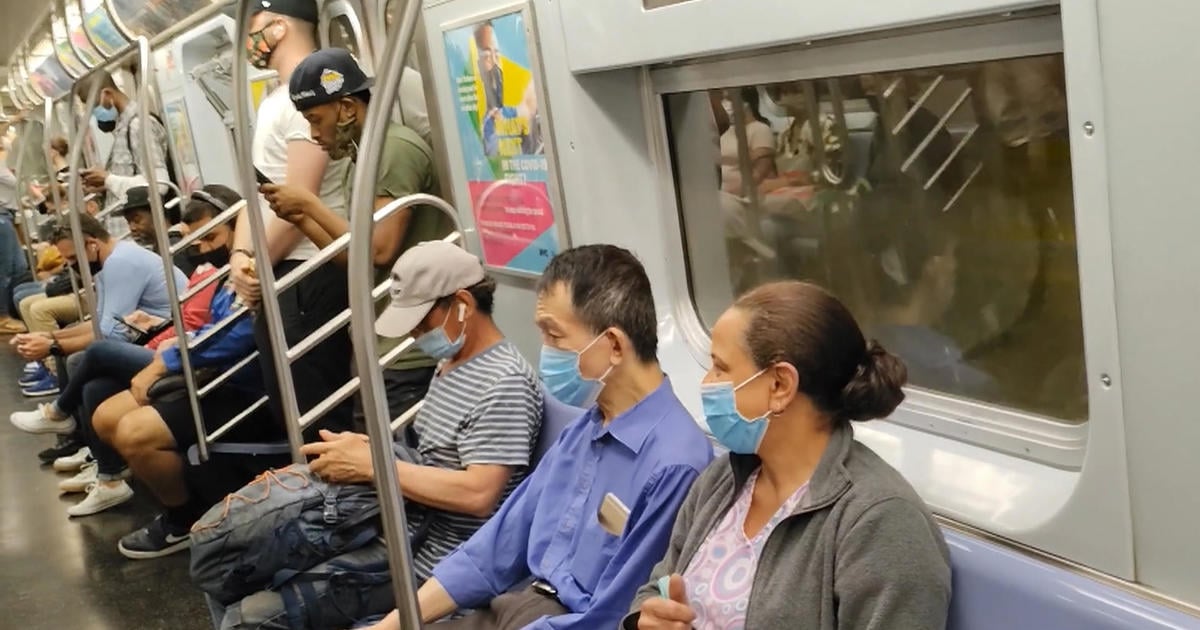In an interview for 60 Minutes, CBS News chief medical correspondent Dr. Jon LaPook posed that question to Linsey Marr, a Virginia Tech University professor specializing in aerosol science.
“They are very helpful in reducing the chances that the person will get COVID because it’s reducing the amount of virus that you would inhale from the air around you,” Marr said about masks.
No mask is 100% effective. An N95, for example, is named as such because it is at least 95 percent efficient at blocking airborne particles when used properly. But even if a mask has an 80% efficiency, Marr said, it still offers meaningful protection.
“That greatly reduces the chance that I’m going to become infected,” Marr said.
Marr said research shows that high-quality masks can block particles that are the same size as those carrying the coronavirus. Masks work, Marr explained, as a filter, not as a sieve. Virus particles must weave around the layers of fibers, and as they do so, they may crash into those fibers and become trapped.
Marr likened it to running through a forest of trees. Walk slowly, and the surrounding is easy to navigate. But being forced through a forest at a high speed increases the likelihood of running into a tree.
“Masks, even cloth masks, do something,” she said.
Not that I expect most people to believe it at this point…



Most people think it is an all or nothing thing, including some doctors.
My immune system is apparently very good against noroviruses or whatever was giving my family the “all exits no waiting” treatment. A doctor argued that I must not have come in contact with the virus since I had no symptoms aside from feeling icky for a couple of hours. I was bothered that they had such a bad grasp on how viral infections work and I don’t consider myself an expert by any stretch. Even after I told them I had been having to clean up my toddler and infant messes, do diapers, bathe them etc. I had come in contact with saliva vomit poo pee breath etc- of course I came in contact with it.
I had the virus, I just didn’t have the disease/nasty symptoms. Maybe I had built immunity, maybe I had been able to build immunity quickly, maybe insufficient viral critical mass for rapid onset- who knows?
Yeah, I’m the same way, I always get about 10% as sick as the rest of my family when something is going around. I just assume my immune system is well trained. But I am also always cautious when new stuff is around, as an immune system can’t be trained to stuff it hasn’t seen yet. But I don’t go for a zero tolerance approach. I go for a minimize exposure approach. Avoid contact with mucous membranes and other external weak points, and keep distance. But don’t completely avoid everything. Still do stuff, just more carefully.
I’m stealing this.
Norovirus is fucking EVIL. The worst part is your body doesn’t maintain immunity indefinitely. Which is why people will often complain they get it seasonally.
When I’ve had it I like to say “my organs have been liquified and my skin suit is blasting the soup out of both ends”.
Nothing worse than jetting hot shit out of your ass then puking into the bath at your side - repeatadly.
Then when you’re ‘empty’ you curl into a ball on the bathroom floor.
That’s awful. My weird immune system has its own issues, but not noroviruses thus far.
I have had your experience caused by food poisoning and it ended putting me in the ER so you have my sincere sympathy.